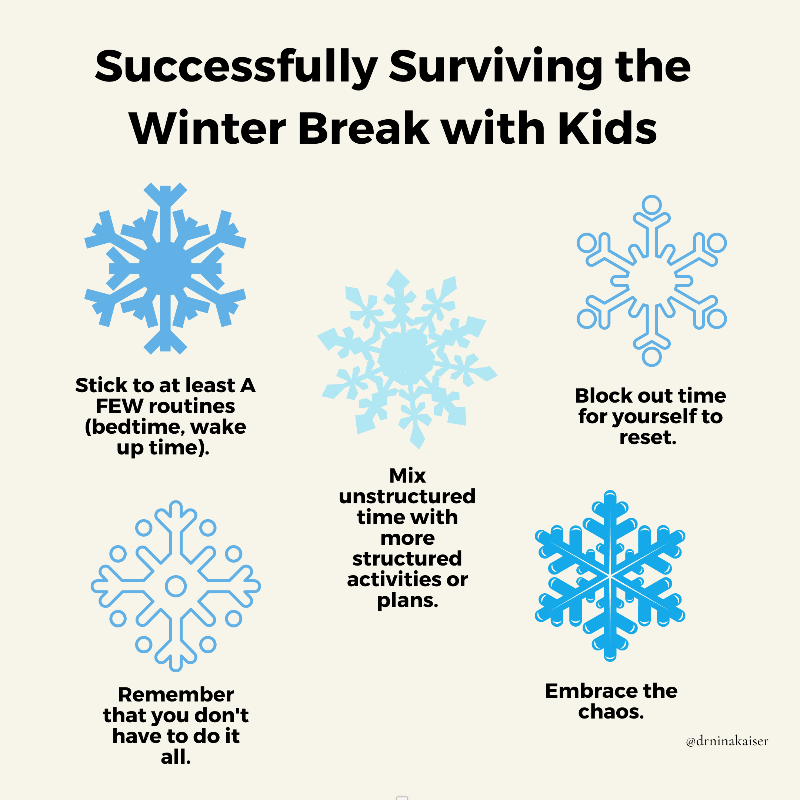Winter Break Already Feeling a Little Long??!
Here are our best tips for surviving the next two weeks with your kids.
(You can love them AND this can be hard. 😬)
Note: This content was originally published in our December 2021 newsletter.
Happy winter break, Practice families!👋
We're on day four, and my kids already seem to be going a little stir crazy (and the rain has only just begun!). If you're also feeling like the next two weeks might be a little long, I don't have a magic wand-- but I do have a few tips that might help.
1. Stick to at least A FEW routines (bedtime, wake up time).
Kids are creatures of habit, guys, and we're going to do everyone a favor if we can (mostly) try to stick to a few routines. If we can maintain the same(ish) patterns around sleep for our kids, they are more likely to be better rested-- and therefore also more likely to be flexible, cooperative, and pleasant to spend time with. And as an added bonus, keeping bedtimes and wake up times relatively consistent should make the return to normal life in January a little less painful.
2. Mix unstructured time with more structured activities and plans.
We all could use a little time to relax-- but kids don't actually do all that well with unlimited unstructured time (for more on this, check out this newsletter from journalist Melinda Wenner Moyer). Instead, they tend to get bored and whiny, into fights with siblings, and/or into other mischief. Some unstructured downtime is fine-- but it's probably wise to toss in some other, more structured activities and plans. This also can help you get your kid(s) to entertain themselves during the unstructured time if you set expectations, and pair those expectations with a reminder about a fun activity coming next-- for example, "You guys have 45 minutes to play independently, and then we'll... [insert a fun, more structured activity here-- e.g., bake cookies, go to the park, family hike, craft project, whatever floats your family's boat].
3. Remember that you don't have to do it all.
Pare back on your expectations for yourself and for your family. It's OK if you don't do every single thing on your holiday break hit list-- in fact, there are huge advantages to just letting some of those things go. Find the things that matter the most to you and/or to your kids, and let go of the rest. Choose where you want to allocate your effort and energy-- and remember, the more things you say yes to, the more likely it is that you're saying no to retaining your own patience, grace, and emotional equanimity. As Washington Post columnist Carolyn Hax recently said, "Save your effort for being as rested and loving of a parent as you can be. The rest is just shellacked reindeer poop."
4. Block out time for yourself to reset.
With kids at home, things are likely to be louder and more chaotic. There are likely to be more demands, and less space. It's easy to trade work demands for family demands over vacations-- but blocking out time for yourself to reset will help make it more likely that you show up this holiday season in a way that you feel good about. If you have a partner or co-parent, strategize about this in advance so that you each get the chance to take some breaks (and take some deep breaths!). If you're on your own, schedule quiet time into your family's daily routine, and use the time your kids are reading or on screens as a chance to do something that grounds you or brings you joy.
5. Embrace the chaos.
... or at least try!
Wishing you and your family a peaceful(ish!) winter break ahead!

